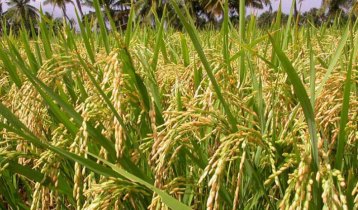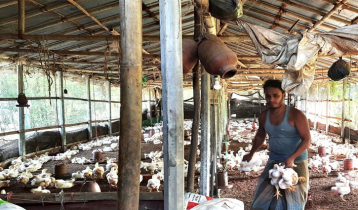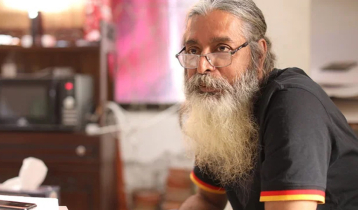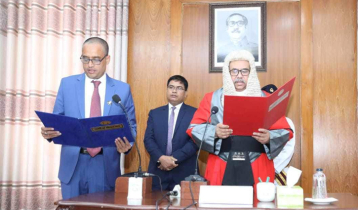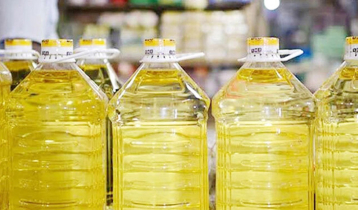Boosting water table can curb climate risks
5 || risingbd.com

Risingbd Desk: Increasing the water table under the UK's arable peatland can help boost yields and the amount of carbon stored in the soil, a study has suggested.
University of Sheffield researchers are encouraging farmers to increase the water table to 30cm under the surface, rather than the recommended 50cm.
Under current practices, the nation's farmed peatlands could be lost by the end of the century, they add.
The findings appear in the Science of the Total Environment journal.
The team of researchers wanted to test the idea that increasing the water table underground would lead to an increase in the absorption of carbon dioxide from the air.
In order to do this, they carried out a lab experiment using soil taken from peat agricultural land on the Norfolk Fens (one of the largest UK lowland peatlands used for commercial farming).
They raised the water table to 30cm beneath the soil surface and then planted radish crops.
'Not high enough'
"We realised that the water tables were not high enough," concluded lead author Samuel Musarika from the university's Department of Animal and Plant Sciences.
Current management guidelines suggest the water table should be about 50cm below the surface. There are a number of reasons for this, such as disease prevention, explained Mr Musarika, but he said this was too low.
"Funnily enough when we raised it with the crop of radishes we were growing, the crop actually grew better when there was more water," he added.
The team recorded an increase in the plants' biomass, suggesting a possibility for improved yields as a result of raising water tables.
Peatlands are widely recognised as important habitats in need of preserving because they are a carbon-rich landscape, estimated to hold half of England's soil carbon.
However, they also are an important component of the UK farming landscape.
Mr Musarika observed: "We want to maintain food production because we know the population is growing.
"We are realising that it is important to keep not just food but it is also important to maintain the peatlands because if we lose them then we will lose more carbon storage capabilities. "
Co-author Prof Walter Oechel from the University of Exeter said the findings were important because climate change mitigation was a dominant fixture on the global policy table.
"The UK is the 111th country to ratify the Paris Climate Agreement, which aims to avoid the most devastating effects of climate change by reducing greenhouse gas emissions," he explained.
"Reducing CO2 emissions from peatland soils will not only help the UK to reach the targets set out in the Paris Agreement but will also help protect and extend the life of UK's agricultural peatland soils."
Mr Musarika added: "Ideally, we want to return the peatlands back to their natural state but that won't necessarily work as we need to maintain food production, so we need to raise the water table.
"We need to encourage farmers that it is possible, Once we do this then we will be able to maintain a lot of the peatlands and we will have less carbon loss."
Failure to act could have consequences for the agricultural industry's ability to mitigate carbon emissions, which - globally - account for about a third of greenhouse gas emissions from human activities.
He warned: "If we do not do that, we will run out of agricultural peatlands in less than a hundred years or so."
The team said it planned to repeat the experiments using celery crops.
Source: BBC
risingbd/DHAKA/Feb 6, 2017/Amirul
risingbd.com

